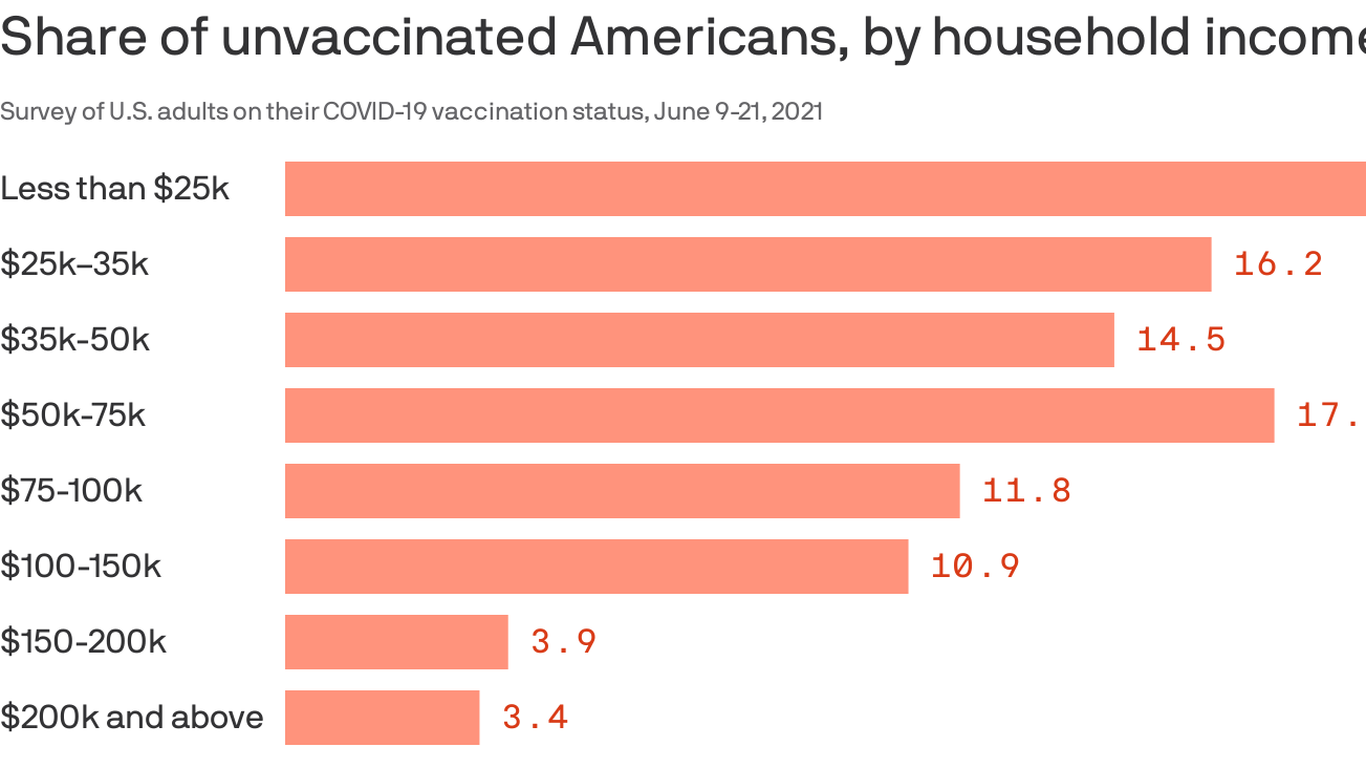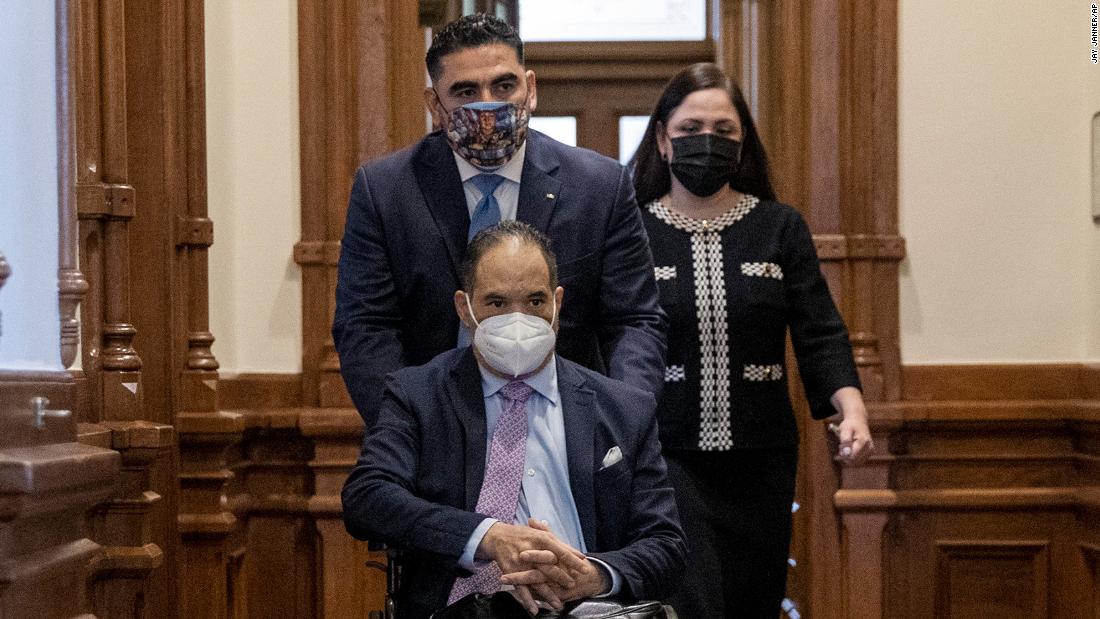They aren't requiring vaccination at my work.
Most of the people that I work with pivoted to WAH and we have not pivoted back. They have sent out surveys to see if we have gotten vaccinated, but they aren't requiring us to come back to the office, nor are they requiring us to travel for work. We have a large number of retail employees as well that are also not required to be vaccinated.
When we look at vaccination trends, we find that vaccine hesitancy is highest in low wage workers. When they asked them about getting vaccinated, one fourth of these unvaccinated workers say that they will probably or definitely get the vaccine, and the data suggests that two thirds of these unvaccinated people are unsure but receptive to getting the shot.
Vaccination has been politicized, but juggling work schedules and child care could be bigger factors than politics.
- "A lot of low-income workers are working hard to provide food and housing," said Julia Raifman, a health policy professor at Boston University. "That may mean it's hard for them to find a time to get vaccinated."
- Workers also may worry about having to take unpaid time off if they come down with any vaccine side effects. Raifman has heard anecdotal stories of employees receiving less favorable hours if they miss work.
Most low-income workers still want the shot, though.

www.axios.com
I would also like to point out that one third of all vaccine hesitant people are worried about cost.
Congress passed laws barring pharmacies and hospitals from billing patients for coronavirus vaccines. Signs at vaccination sites advertise that the shot is free. From the beginning, health officials and government leaders have told the public it won’t cost anything. And there have been few reports of people experiencing charges.
Even so, some unvaccinated adults cite concerns about a surprise bill as a reason for not getting the shot. Many of them are accustomed to a health system in which the bills are frequent, large and often unexpected.
A recent Kaiser Family Foundation poll found that about a third of unvaccinated adults were unsure whether insurance covered the new vaccine and were concerned they might need to pay for the shot. The concern was especially pronounced among Hispanic and Black survey respondents.
Concern over unexpected bills was one of the reasons respondents in a U.S. survey gave for hesitation about getting the shot.

www.nytimes.com
I bring all of this up because I'm very interested what will happen if my organization requires cashiers to get shots. My guess is that they will not because they don't want to limit their pool of applicants.
Looking at this from a meta-view, I really wonder how many large employers will extend their mandates to low wage workers given the problems they are having with staffing. WalMart is requiring some corporate and management employees to get a vaccine, but they have yet to push this on the cashiers. And yet it's these "essential workers" who are both most likely not to be vaccinated and to be in contact with the general public.





